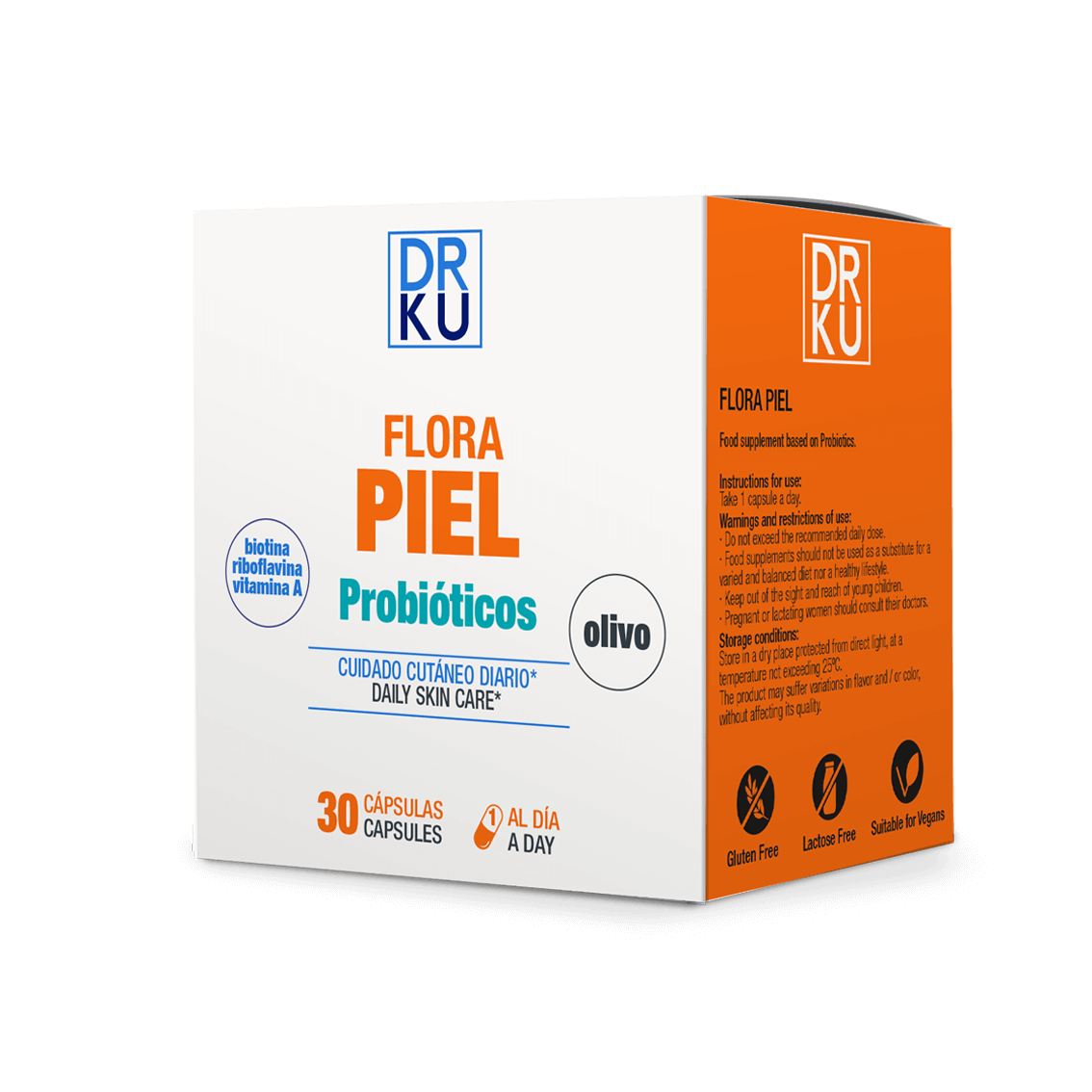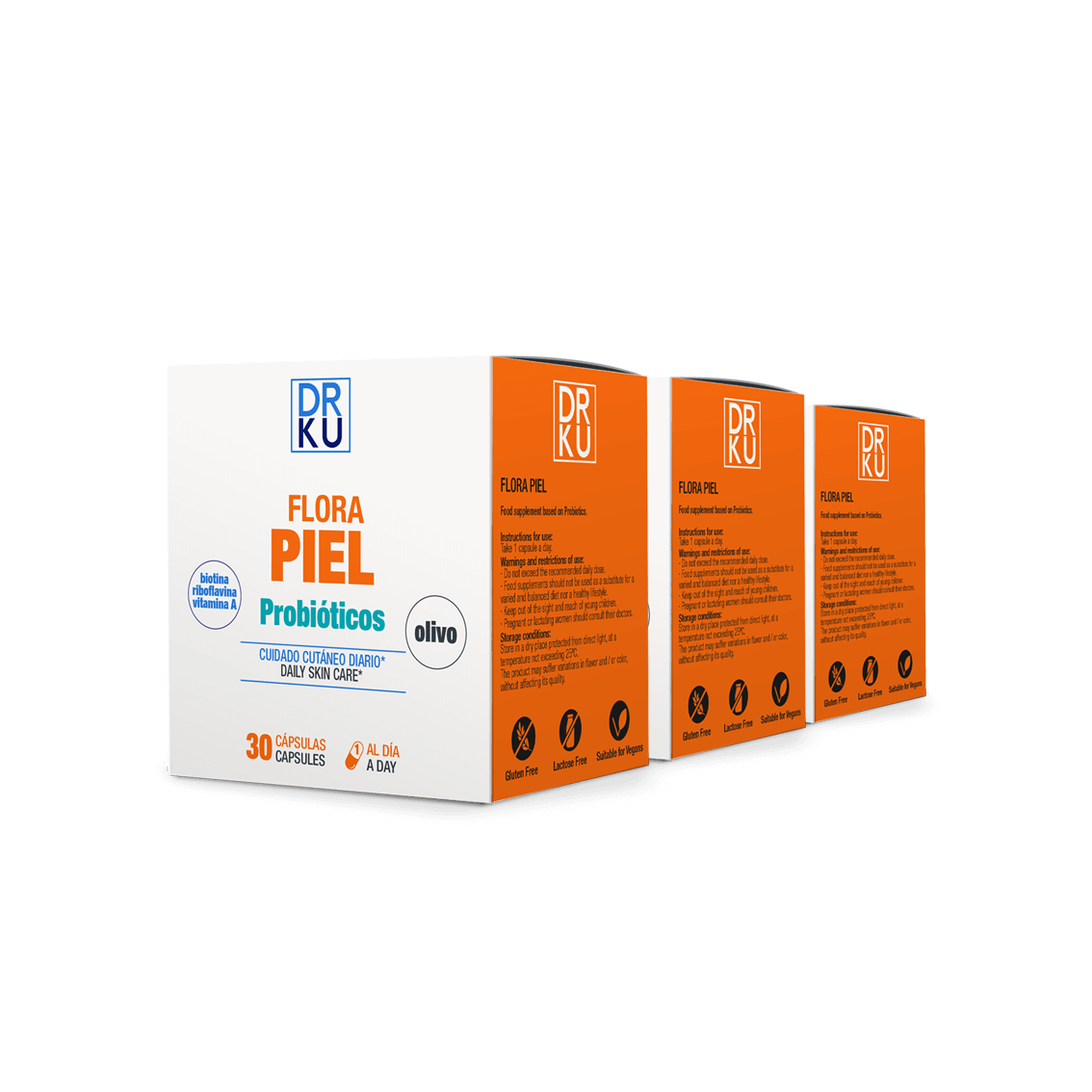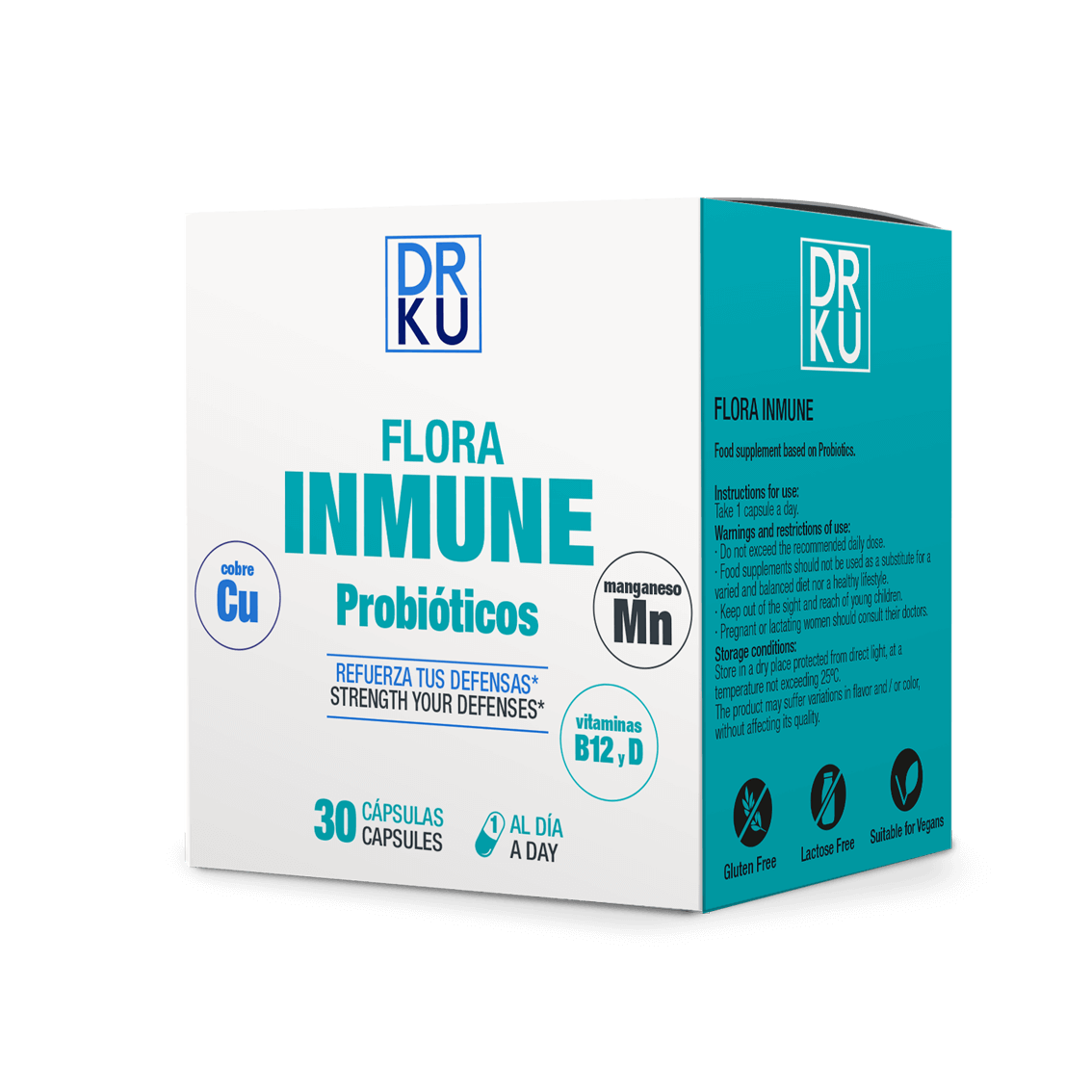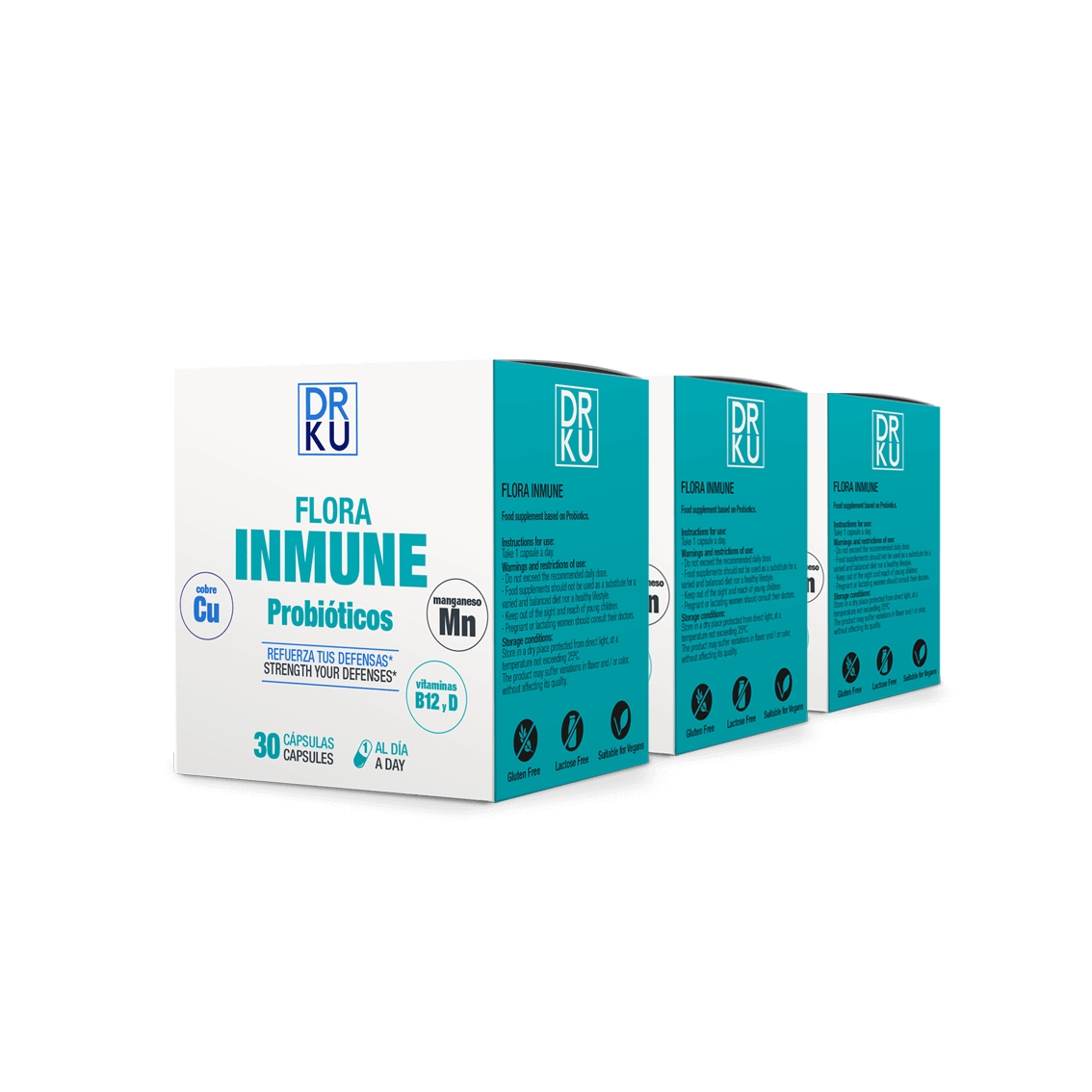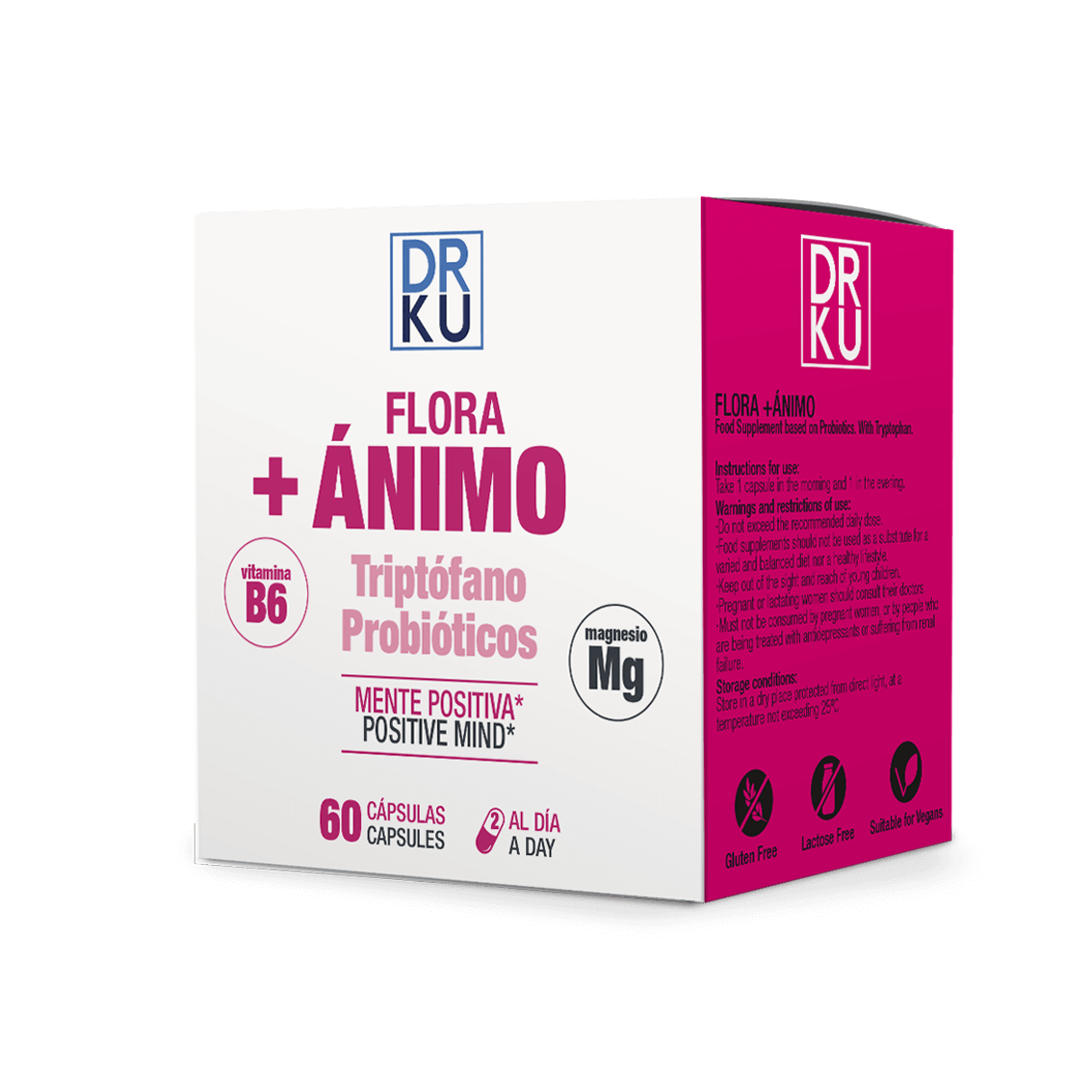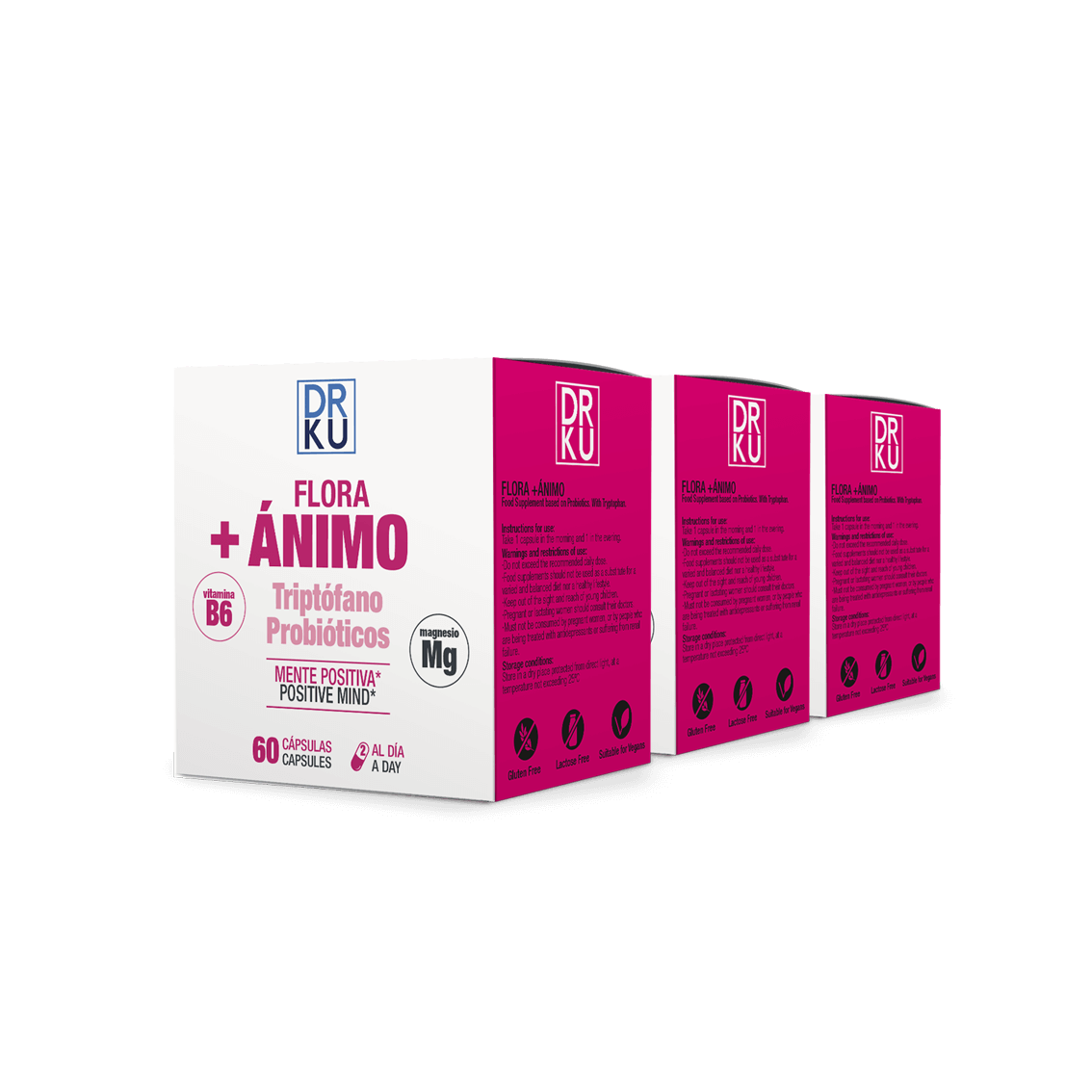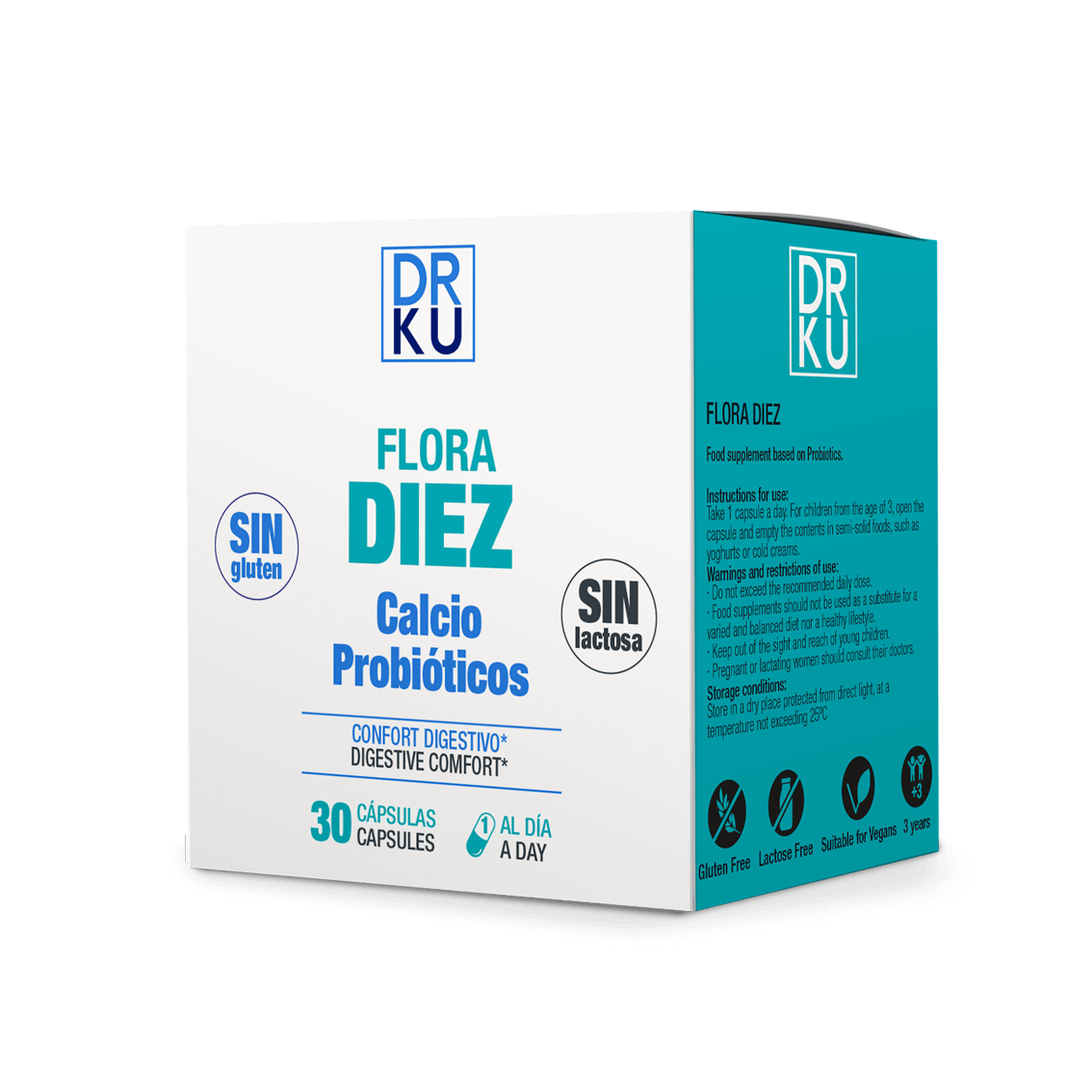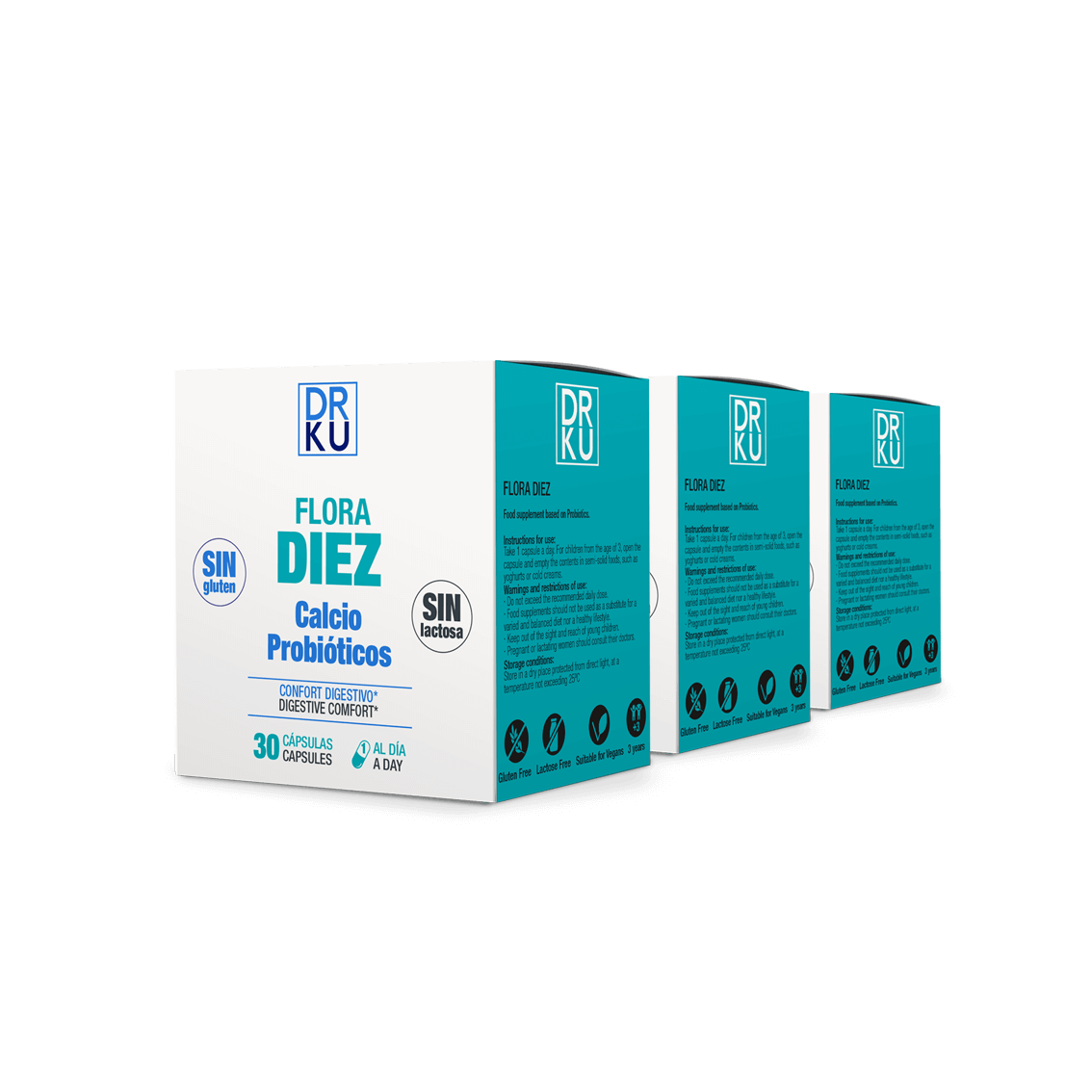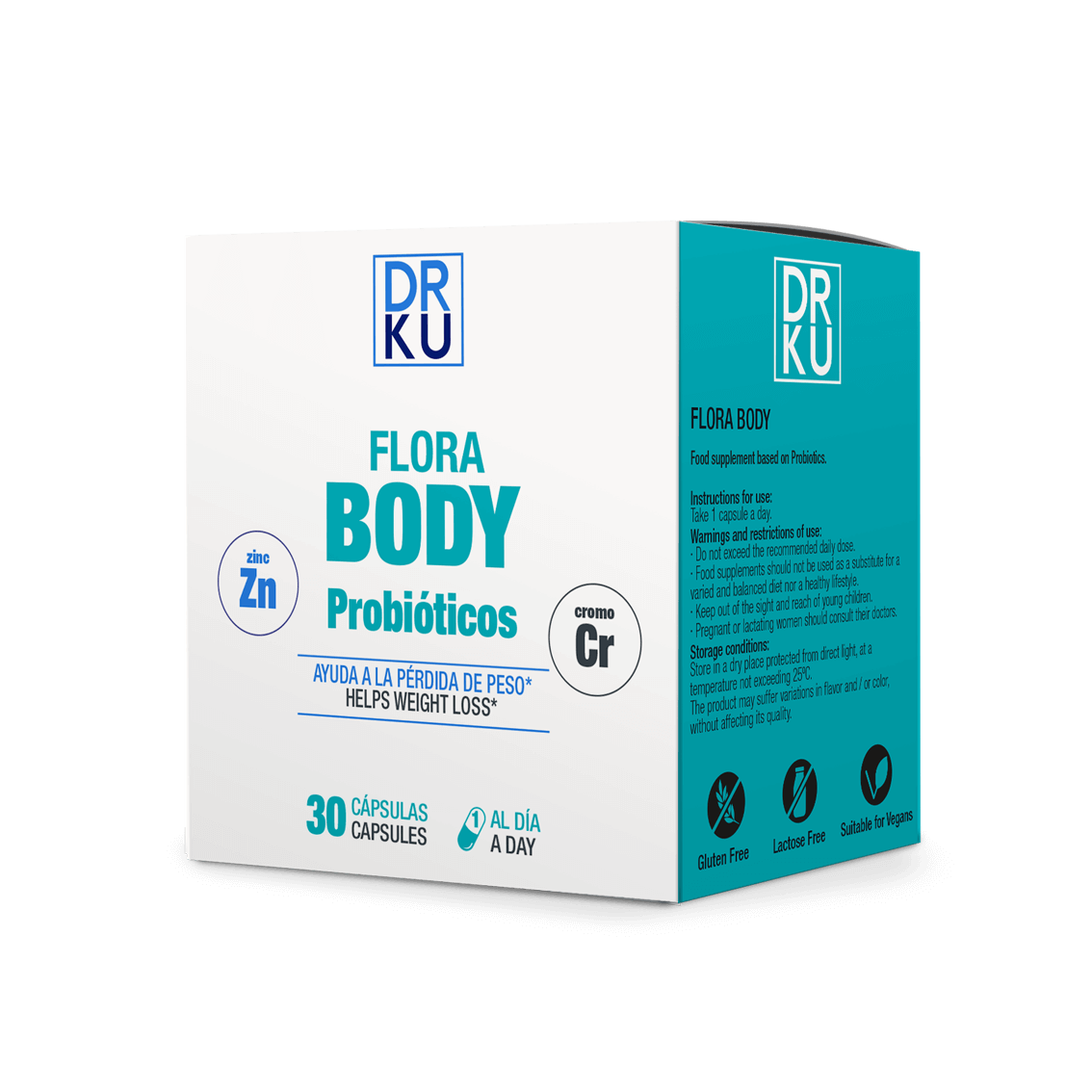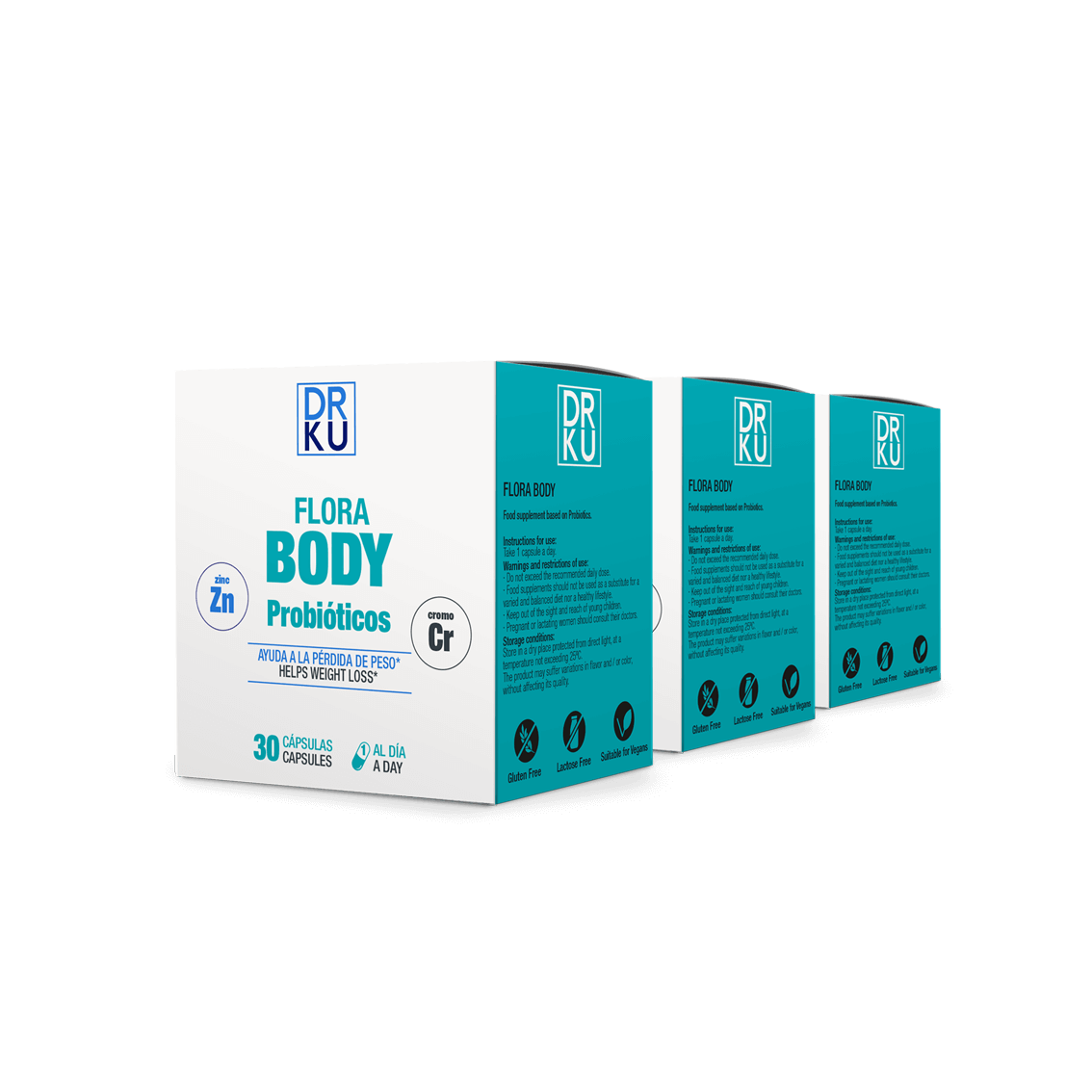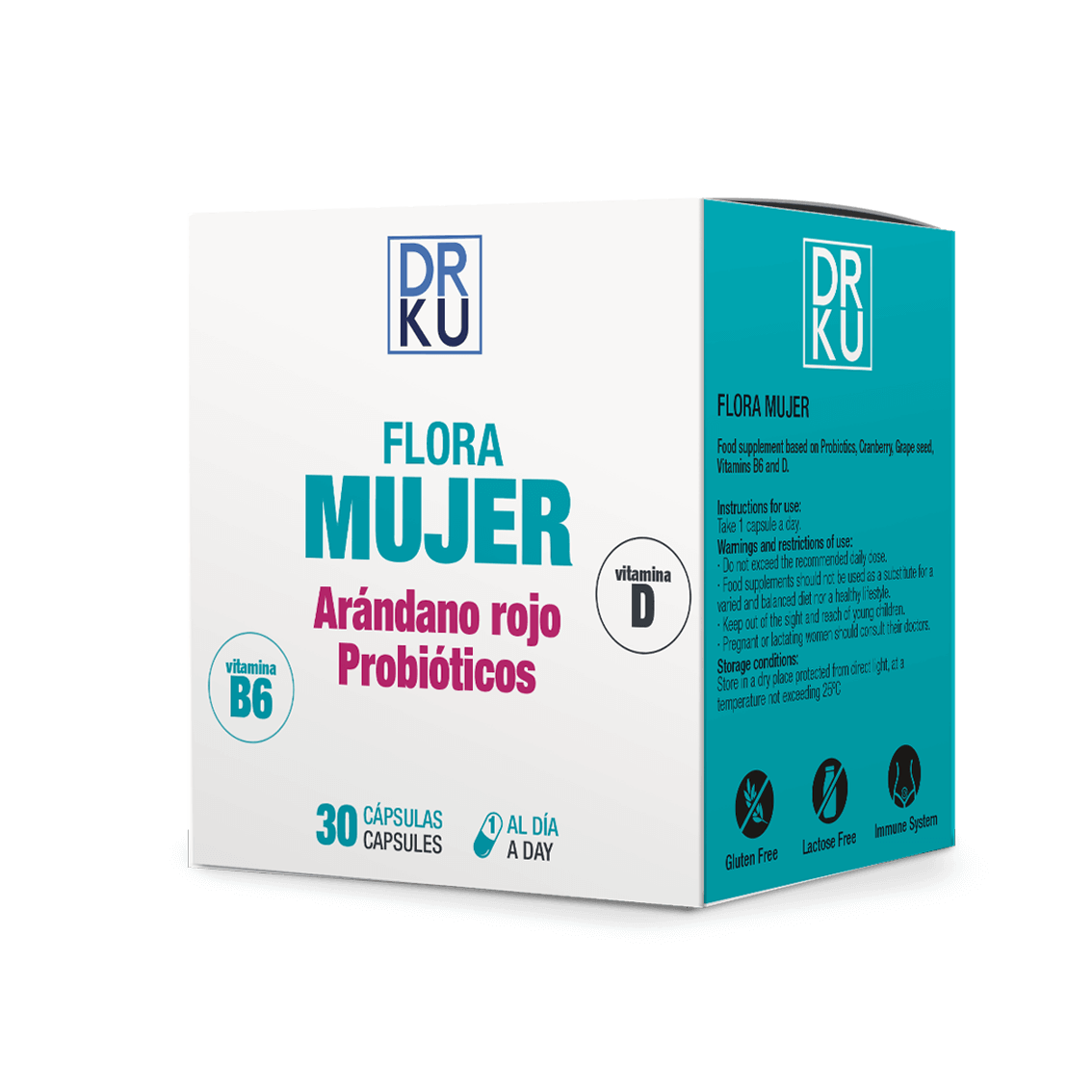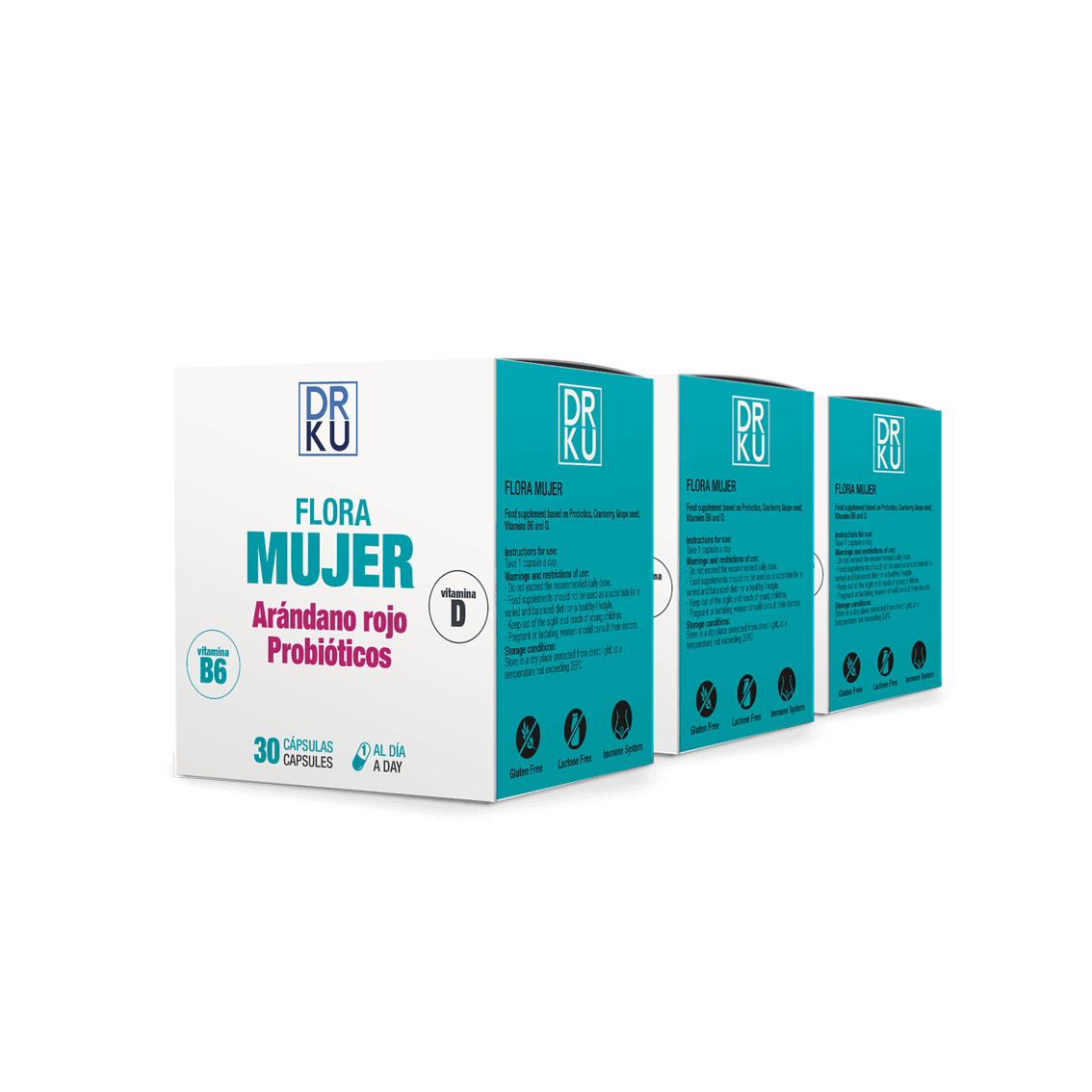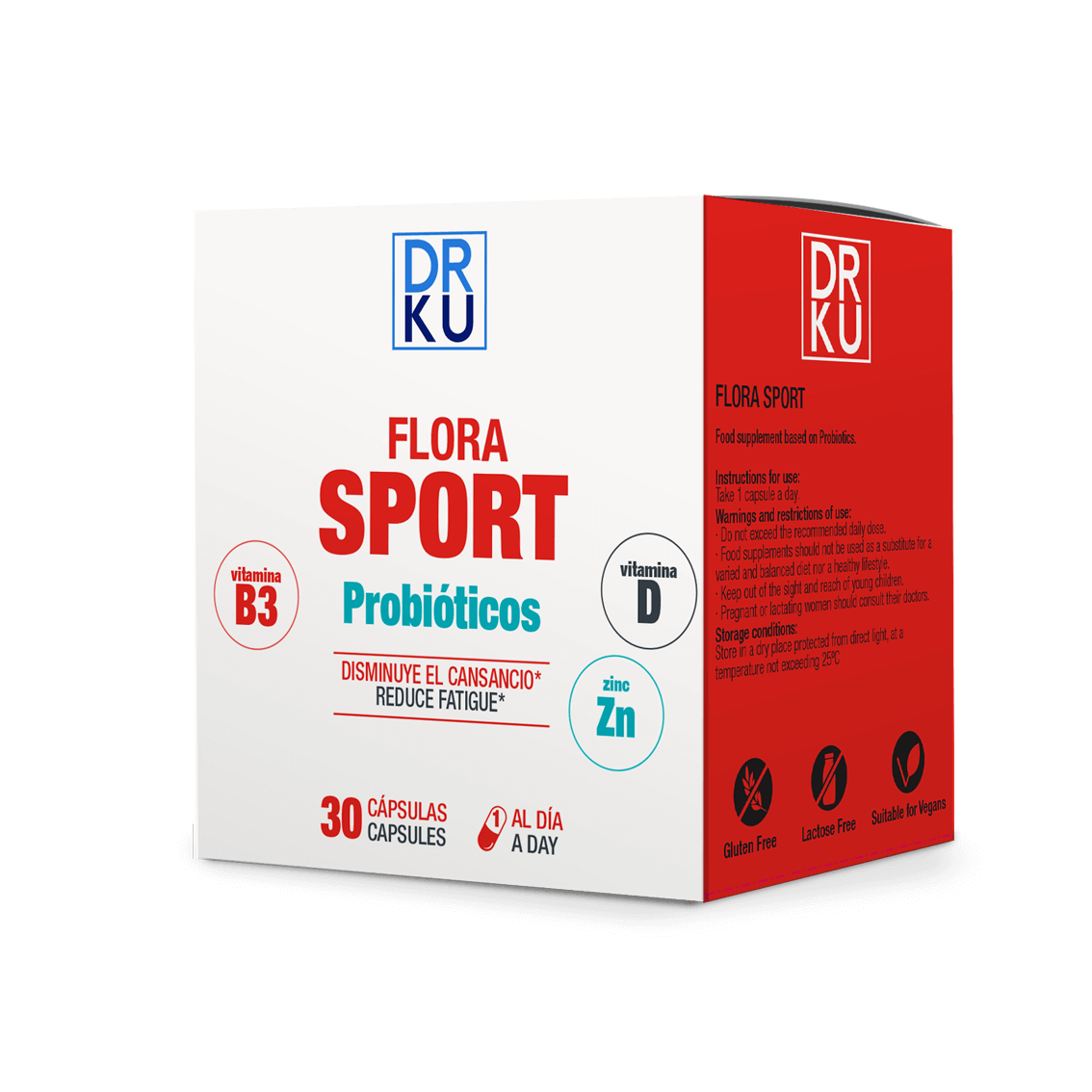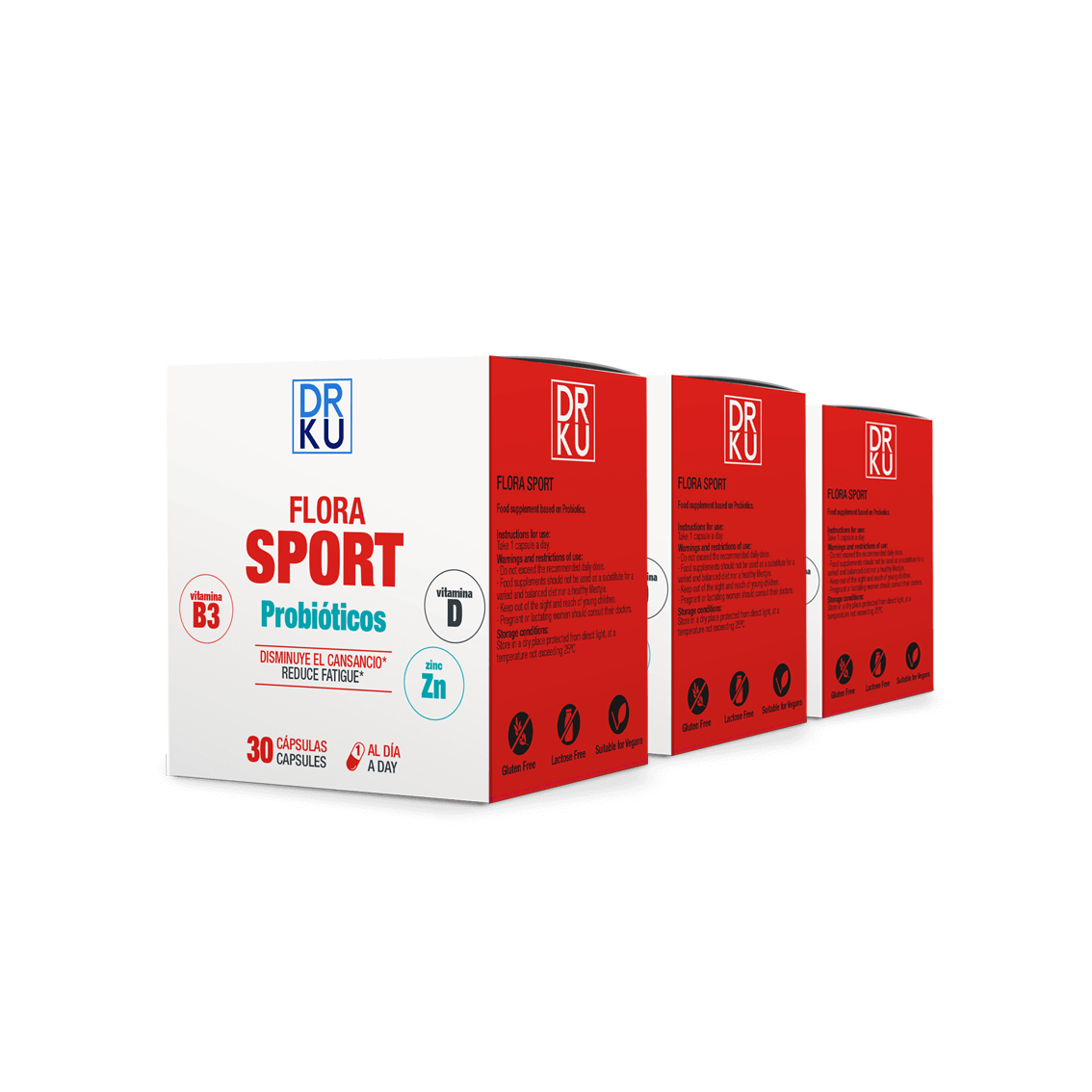Frequently asked questions about probiotics
How to take probiotics and prebiotics
Intestinal flora needs time to repopulate the intestinal tract and re-establish the correct balance of bacteria. It is recommended that when beginning a treatment with probiotics, they are taken in cycles of three months, with a rest period of one week before beginning the cycle again where necessary. For celiacs, or people who are intolerant to gluten, lactose or any other type of food, and whose intestinal flora is seriously affected, we recommend that this pattern of consumption is maintained, that is, to say take for three months, rest for one week, then resume for three months again, continuously. When taking probiotics, it is recommended to take them with prebiotics. Prebiotics are the foodstuff that allows probiotics to thrive, reproduce and give the maximum benefit to our bodies. A good example of these are fructooligosaccharides, inulin and fibre. The human digestive system is not capable of digesting these substances and thus, they pass through the digestive tract intact and in good condition to provide benefits for the bacteria that inhabit it.
How to make home-made probiotics
Making probiotics such as Chucrut and Kefir is extremely simple and can easily be done at home. For Chucrut, you need shredded White cabbage, sea salt and a glass jar. Place the shredded cabbage in a large glass jar and add 3 table spoons of sea salt for every 2 kg of cabbage. Knead well by hand making sure that there is a space between the cabbage and the top of the jar. Cover it with a cloth and continue kneading daily for 3 weeks, until plenty of juice has been released and the cabbage has fermented. For Kefir, you need granulated Kefir, milk and a glass jar. Put the Kefir and milk in the jar and leave for 24 hours. Strain the liquid from the grains and it is ready to drink.
How do they work? What do they do? What effect do they have?
Probiotics are living microorganisms that are beneficial for our health when consumed in sufficient quantity, helping to maintain the equilibrium and good condition of our intestinal flora. When consumed, they survive the passage through our digestive tract and re-establish this equilibrium in the small intestine and colon. The mechanism by which probiotic bacteria occurs is physical movement in such a way that beneficial bacteria displace the noxious bacteria and prevent them from colonizing. They have, in a natural way, beneficial effects on the state and functioning of the intestinal tract, working in tandem with the resident flora. One of the main areas of application of probiotics is the prevention and treatment of gastro-intestinal problems.
Why should I take probiotics?
Taking probiotics is recommended for everyone. Although, they are particularly beneficial as a food supplement when there is an underlying pathology that is compromising the healthy functioning of intestinal flora. For example, for celiacs, or people who are intolerant to gluten or lactose or indeed any type of food, the intestinal flora is usually adversely affected, often leading to severe inflammation, which in turn causes damage to the equilibrium of intestinal flora. For this reason, in cases such as these, it is recommended to take probiotic food supplements to alleviate these symptoms (abdominal pain, gas, abdominal swelling, etc.) in order to re-establish the micro-biotic balance.
Why are they good for us, and why do we need them?
Probiotics have the ability to digest some of the substances that we ingest so that our body can assimilate them, and therefore they help us to absorb more nutrients. Moreover, they are the bacteria that repopulate the walls of our intestines, making up what is known as the “intestinal flora”. Maintaining the correct balance between “good” and “bad” bacteria has strong benefits for our digestion, and also helps to maintain a healthy immune system, and preventing illness and infection. Good health is closely linked to our intestinal flora and to our digestive system in general.
Why should I take probiotics?
For people suffering from the celiac illness, taking probiotics will help relieve symptoms of intestinal discomfort. Your intestinal flora is usually adversely affected by gluten, and until this condition is diagnosed and gluten is eliminated, and a gluten-free diet is followed, the condition will continue to cause discomfort and symptoms will remain. The recovery process for intestinal flora and villi is a slow process, however taking probiotics helps this process to progress more quickly and even helps to protect intestinal health of celiacs. Of course, when the celiac illness is diagnosed, you must stop eating any food that contains gluten. Probiotics only help to improve the symptoms of intestinal tract problems acting as an indispensable complement for celiacs and their gluten-free diet.
Where can I find probiotics? What do probiotics contain?
Although there are food supplements made from probiotics, there are also foodstuffs that have a probiotic effect on our bodies. Examples of this include: Kefir (a product made of fermented milk similar to yogurt which contains a large quantity of bifidus and lactobacillus), Chucrut (fermented vegetables, normally of the cabbage family, which contain a large quantity of enzymes that promote growth of healthy bacteria), Miso (fermented soya beans, high in enzyme content), Tempeh (fermented soya rich in probiotics, protein and vitamin B12) and black chocolate (fermented cocoa, rich in antioxidants) among others.
Who can and should take probiotics?
Although probiotics have benefits for everybody, there are groups of people for whom probiotics are particularly recommended, such as people suffering from the celiac illness, people who are lactose intolerant, or allergic or intolerant to any other foodstuffs (people who suffer from digestive problems or have microbial imbalances). Probiotics are also highly recommended for people who travel often, or who are going to travel to a foreign country for a long period of time where the culinary culture is going to be very different from their home country, and will thus affect their intestinal flora. Finally, probiotics are recommended for people with an imbalance in their intestinal flora or who suffer from gas, swelling or discomfort.
Which probiotics do you recommend?
Taking food supplements based on probiotics is recommended for anyone who wants to improve the health of their digestive system. For each specific case there are products that have different effects. FLORA DIEZ is a product designed for celiacs, people who are lactose intolerant, or allergic or intolerant to any other foodstuff, people who travel frequently, and for anyone who wants to improve the condition of their digestive system. FLORA CARDIO has been formulated to normalize the 5 risk factors of metabolic syndrome (hypertension, diabetes, triglycerides, low HDL cholesterol and obesity. FLORA MUJER is designed for the treatment and prevention of urine infections (cystitis). FLORA INMUNE and FLORA INMUNE for children improve the immune system and help to prevent colds and flu. All these products are gluten-free and lactose-free, and are suitable for vegans.
When to take and how to use supplements?
We recommend that prebiotics be taken in the morning, 15 minutes before breakfast, with cool or room temperature drinks. This is important as these bacteria are sensitive to high temperature, and if taken with hot drinks they may lose part of their living strain of bacteria. If probiotics are taken alongside antibiotics, it is recommended not to take them at the same time of day. It is better to wait for 3 hours after taking antibiotics before taking probiotics, as these may attack the “good bacteria”, which will, in turn, lose some of their efficiency.
Probiotics when suffering from diarrhoea
Diarrhoea is a common problem, characterized by faeces of liquid consistency 3 or more times a day. The most common cause is micro-organisms present in the body, although in most cases these are not identified. Adding probiotics to normal therapies will help accelerate the recovery process, and will be helpful in reducing symptoms. As they provide beneficial bacteria for the intestinal flora, probiotics improve the micro-biotic balance in our bodies, and thus signs and symptoms of diarrhoea will disappear more quickly. As well as having a palliative effect on symptoms, probiotics can also prevent this problem from occurring.
Probiotics when taking antibiotics
Antibiotics are substances of chemical origin, which, due to their composition, destroy the micro-organisms with which they come into contact. When we have a cold, we have both “good micro-organisms and those which are causing discomfort and infection, and thus, when we take antibiotics, as well as destroying the pathogens, they also reduce the population of good micro-organisms that generally inhabit our intestinal flora. For this reason, when we take antibiotics for a relatively extended period of time, intestinal problems usually appear, such as stomach ache, burning sensations or even diarrhoea. Given the importance of intestinal flora, it is necessary to maintain it in the best possible condition in order to stay healthy. It is important when taking antibiotics to combine this treatment with a course of probiotics, in order to maintain a healthy balance of intestinal flora and ensure that it is functioning correctly.
What are probiotics and prebiotics, and what are they for?
Probiotics are living organisms that are beneficial to our health, helping the maintain a healthy balance in our intestinal flora. Probiotics have both immunological and non-immunological benefits. Immunological benefits include increased production of haemoglobin and other substances which make up our immune system. Regarding non-immunological benefits, probiotics help us to digest foodstuffs and they also compete with damaging bacteria (pathogens) for nutrients, alter the local pH, which helps create an unfavourable environment for these pathogens and helps the intestinal barrier to function more effectively. Prebiotics are the food element that enable probiotics to live and thrive, assuring that they reproduce and keep their healthy effect on our bodies. Examples of this type of food are fructooligosaccharides, inulin and fibre. The human digestive system is not capable of digesting these substances, and so they pass through the digestive tract intact and ready to provide benefits to the bacteria living there.
Probiotics are bacteria
The term probiotic is used to define living micro-organisms that form part of the intestinal flora. In the digestive tract of human beings, there are more than 400 different types of healthy bacteria, the majority of which are Lactobacillus and Bifidobacterium, however, there are also pathogenic germs, viruses, fungal organisms along with other species in lower quantities. The main role of these bacteria is to maintain a healthy digestive system, promoting the balance and proliferation of “good” bacteria, while keeping “bad” bacteria at low levels. As they contribute to intestinal bacterial balance, they play a role in strengthening the body’s immune system.

